What's yours is mined
Yvonne is a fourth-generation farmer in Queensland's Southern Downs. When the state government granted a five-year mining permit on her property earlier this year, she was the last to know. Now, she's in a fight for her future.
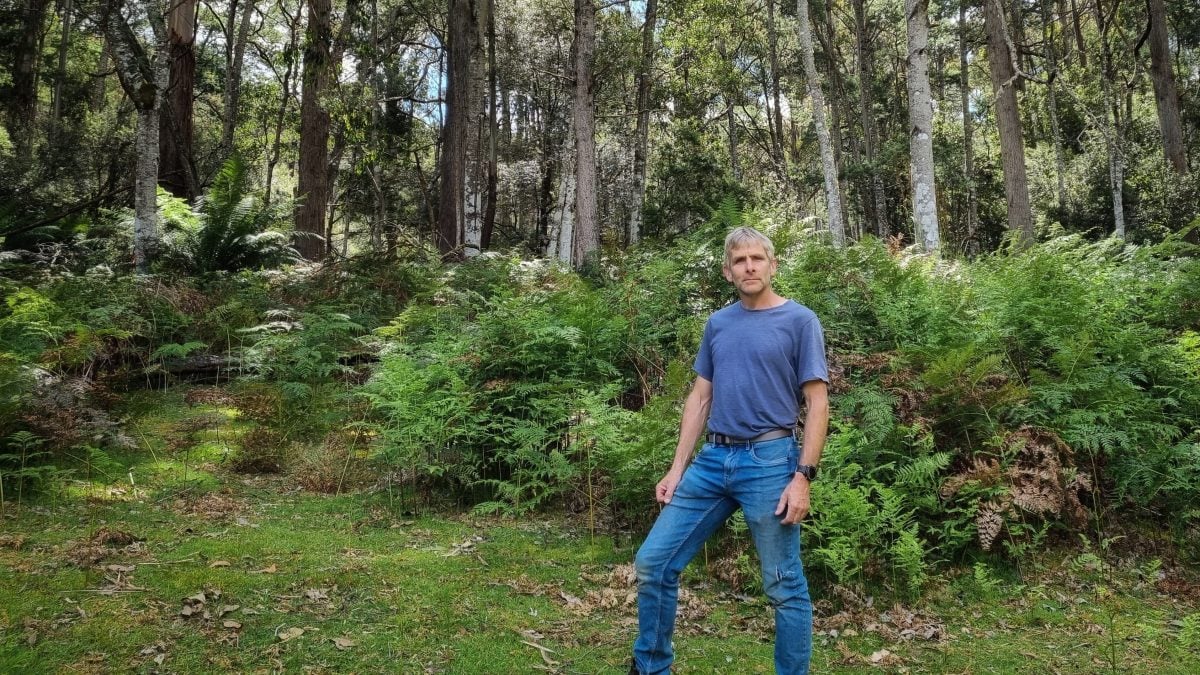
One day’s notice. That’s all Neil, whose property borders a forest in Tasmania’s Huon valley, was given before heavy machinery moved in, the sound of chainsaws rang out and wildlife began to flee for their lives.
Now, Neil and other locals are doing everything they can to save a coupe on Mt Tongatabu from being completely destroyed.
“I used to walk through the forest, spotting tree hollows and the shapes of birds—tawny frogmouths and boobooks. The fungi, at the right time of year, are miraculously diverse and beautiful. When standing underneath towering trees and ferns, you get a sense of the ancient that inspires awe.” — Linda, community member
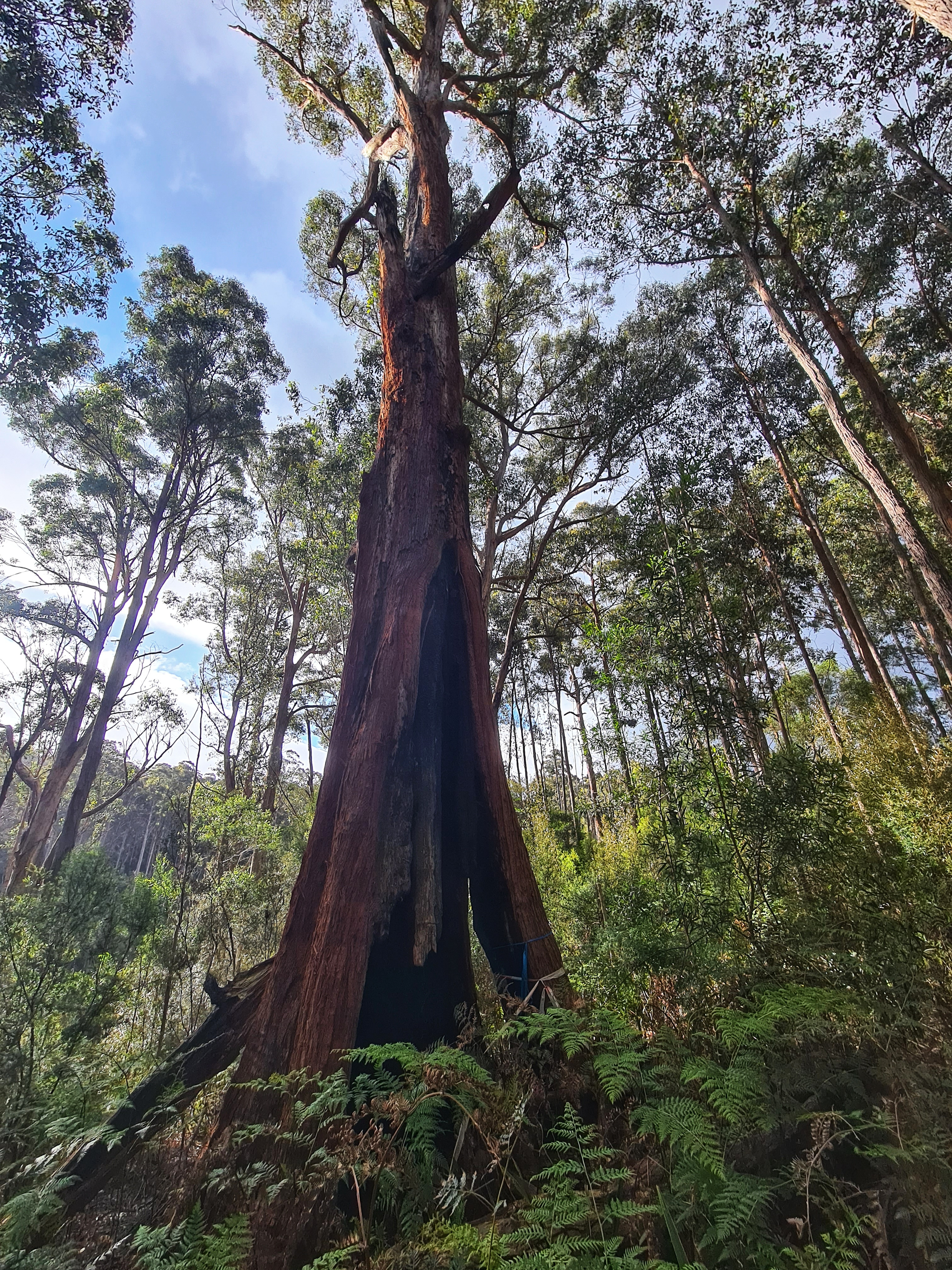
“The feeling of peace and tranquillity is magical, with the surround-sound of nature and abundant birdsong.” — Neil, Surges Bay Orchard
Rising above the valley and visible from across the Huon river, Mt Tongatabu is lush with old growth trees, towering fern groves and running creeks. It’s vital habitat for a range of native wildlife: Tasmanian devils, wedgetail and sea eagles, rare grey goshawks and masked owls. Even endangered swift parrots have been seen feeding in the blue gums here.
But a recent decision to log the forest on Mt Tongatabu—made against the wishes of the local people, and with almost no warning—has shattered this idyllic landscape.
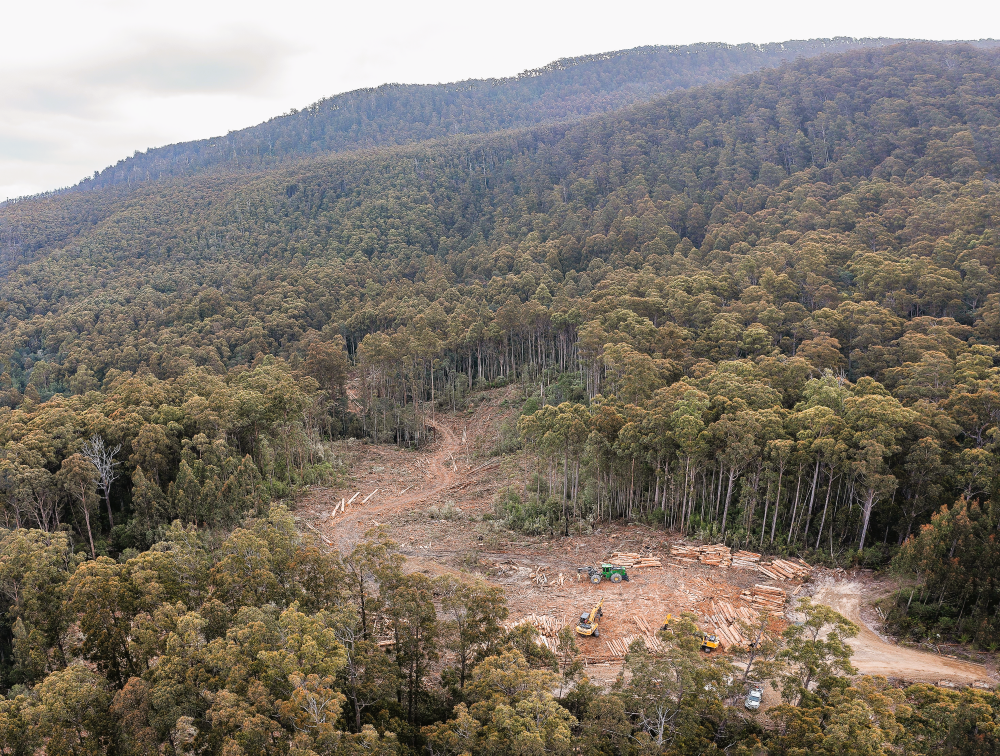
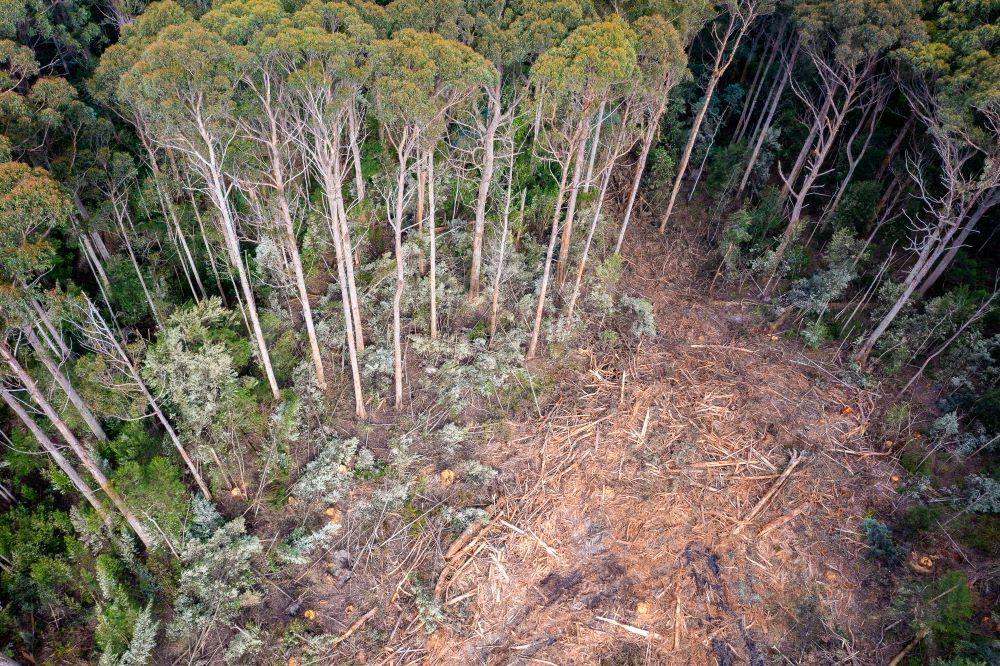
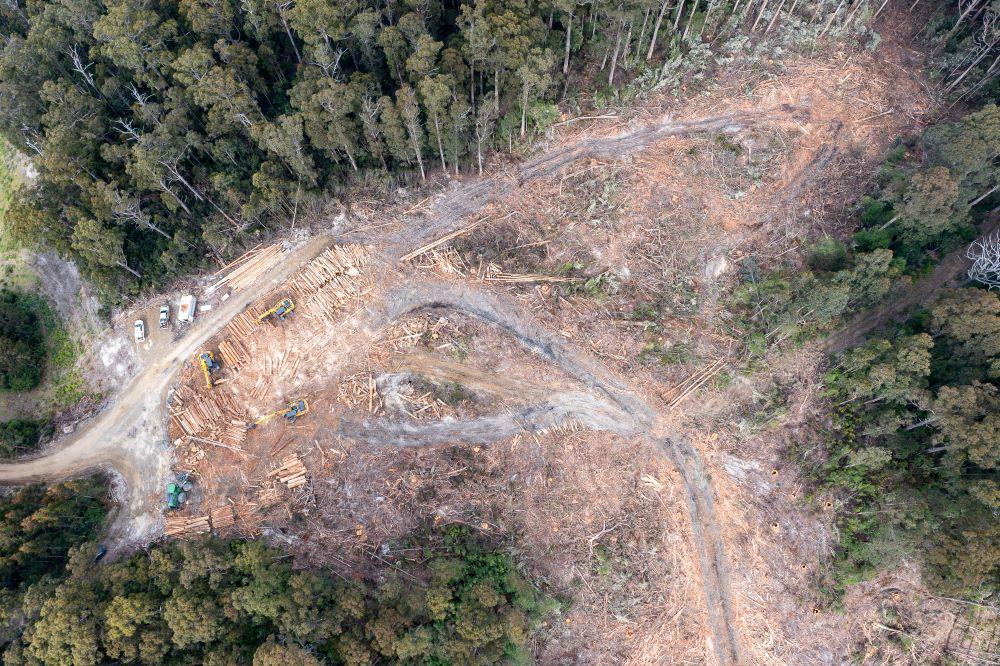
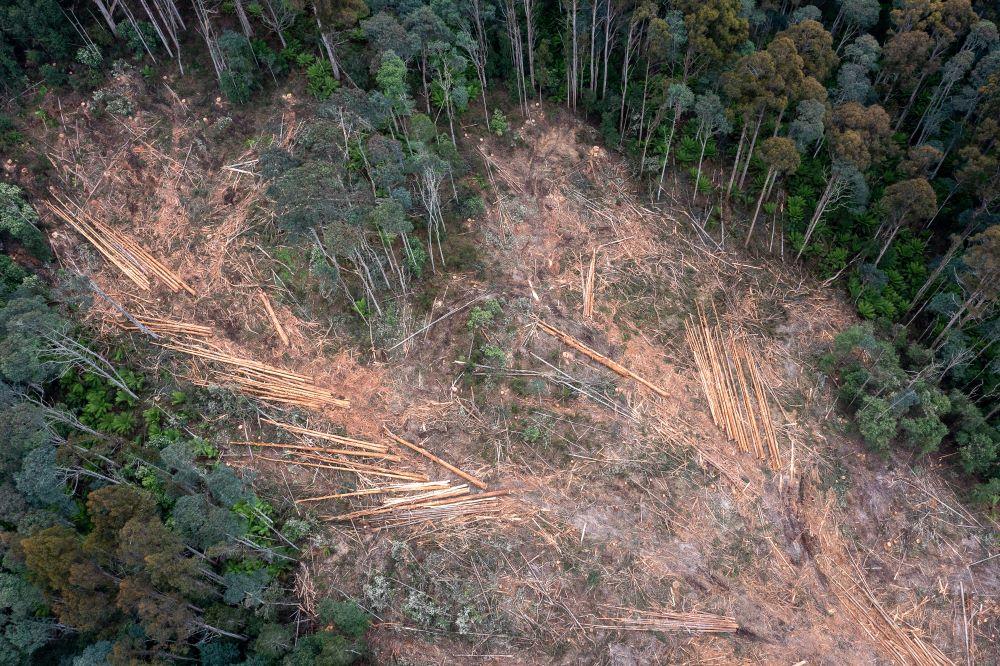
Logging currently underway on Mt Tongatabu
Logging currently underway on Mt Tongatabu
Logging currently underway on Mt Tongatabu
Logging currently underway on Mt Tongatabu
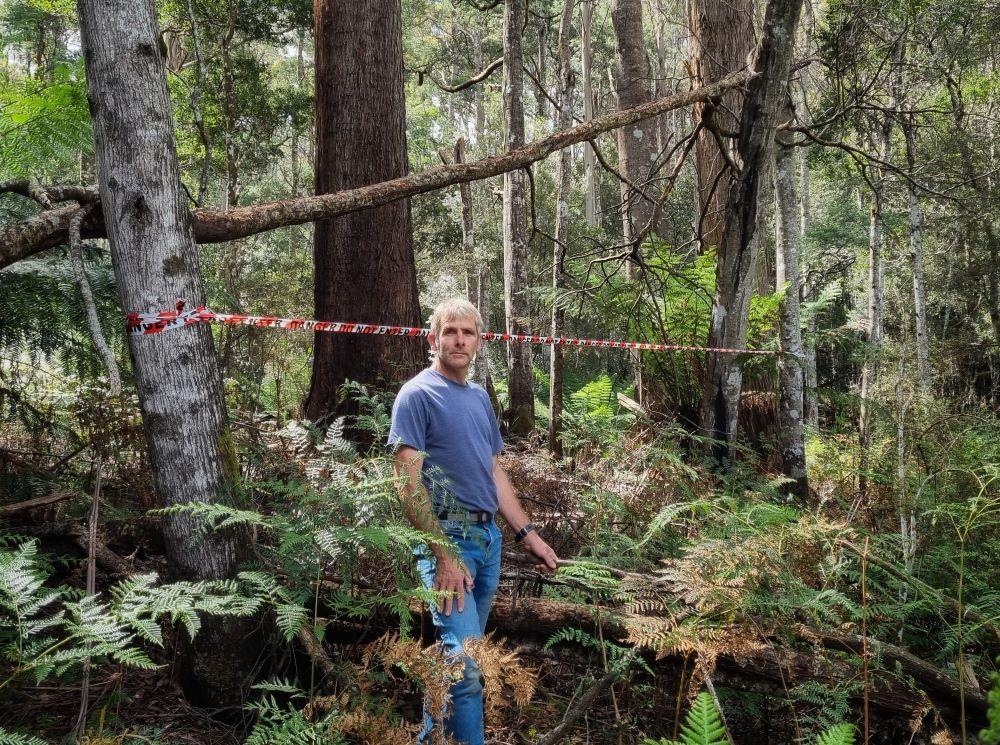
“We first found out that there was a proposed coupe to be logged on Mt Tongatabu in a passing conversation with an acquaintance, but there was no formal consultation until we approached the logging company [state government-owned Forestry Tasmania, trading as ‘Sustainable Timber Tasmania’] to ask questions,” Neil explains. “Following meetings with them, we were told that there would be no logging at the time due to various ‘operational issues’ and that they would keep us informed.”
Well over a year passed, with Neil and the community hearing nothing further. But then one day, a note appeared in Neil’s letterbox, informing him that logging operations would begin the following day.
With such short notice, there was nothing Neil could do but watch in horror as heavy machinery moved in at daybreak and the forest began to fall. Some of the trees even crashed down outside the bounds of the coupe, damaging an area marked for preservation—in clear breach of the Forestry Tasmania’s own forest practices plan. (Another breach: failing to give Neil 30 days notice before the commencement of logging.)
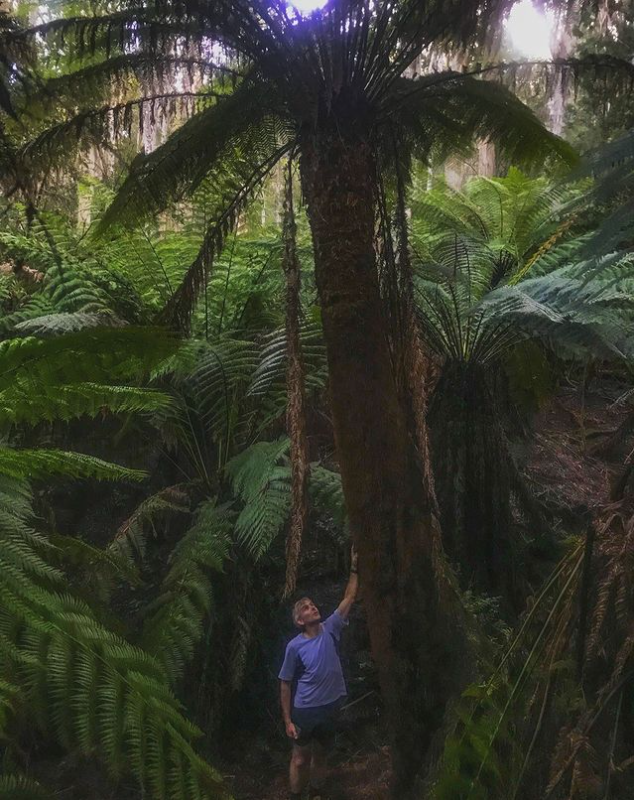
Neil is deeply concerned about the impacts the logging will have on the delicate mountain ecosystem—particularly the potential polluting of the water sources—and on the wildlife whose homes are being felled or crushed. He and members of the local community cannot understand what Neil describes as “the senseless destruction of this small but beautiful patch of forest.”
“This destruction is happening despite clear concern from the community, a request from the community to the logging company to keep us updated (which was ignored), and an indication from the logging company that it was unlikely to pursue logging here.” — Neil
Every Australian deserves a genuine say in decisions that are made about nature in their area. But our latest report, based on legal analysis from the Environmental Defender's Office, reveals that there is little transparency or accountability to communities in Australia's environment and planning laws.
Without strong environmental community rights, governments are able to make decisions that are harmful to the environment, contrary to pleas from the community. Instead of listening to local people, governments are influenced by corporations that profit from the destruction of the environment—like Sustainable Timber Tasmania.
There are three universal environmental community rights: the right to know (access the information authorities hold), the right to participate (have a genuine say in decision-making), and the right to challenge (seek legal remedy if decisions are made illegally or not in the public interest).
Learn more about our campaign for strong environmental community rights
“The decision was made in secret, by Sustainable Timber Tasmania, and it seems the company has deliberately avoided engaging with the community wherever possible.” — Neil
Neil and his community had to proactively reach out to the logging company to participate in the decision-making the year prior, only to have their concerns largely ignored. And while Sustainable Timber Tasmania informed Neil and his community that the logging was about to commence, it only provided a single day’s notice, with no opportunity for the community to challenge the decision.
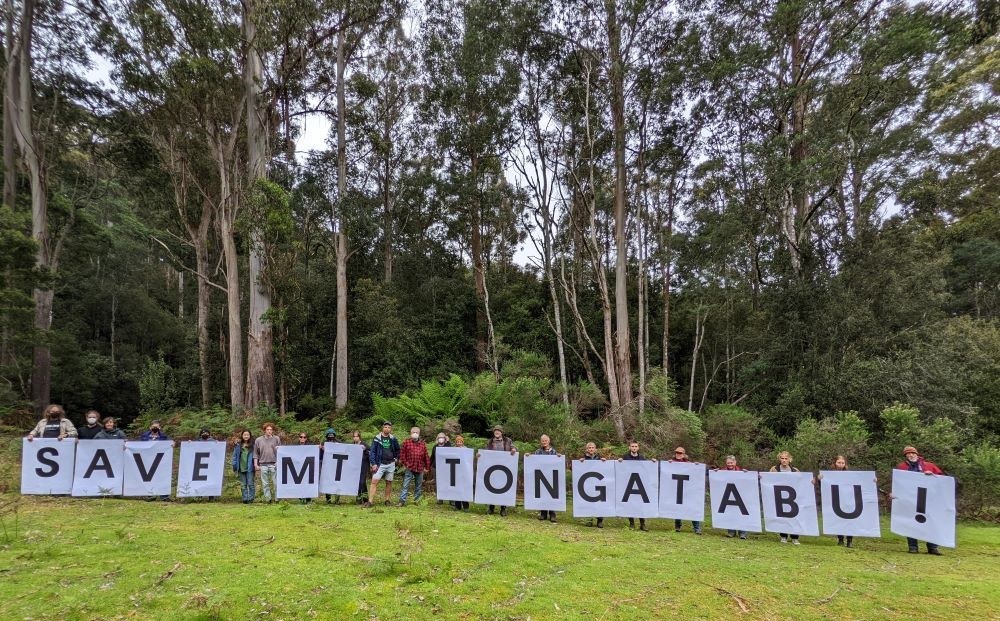
Linda is another Surges Bay local. She used to enjoy standing at her windowsill, looking through binoculars at the grey goshawks and wedge-tailed eagles teaching their young to fly or simply playing with the thermal winds, above a forest teeming with life.
“Mt Tongatabu isn’t ours. It belongs to the devils, quolls, possums, echidnas, wombats, eagles, wrens, goshawks—the fungi, mosses, lichens, flora, and of course, the trees. It’s not ours to destroy.” — Linda
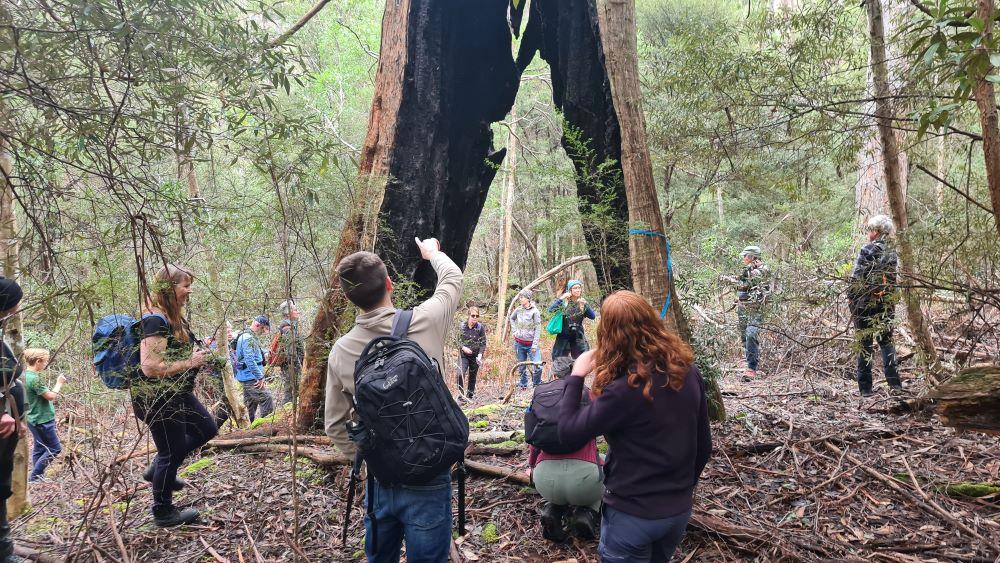
Since the logging commenced, she and other volunteers have been raising awareness on social media (see Mt Tongatabu Instagram and Facebook pages); organising community bush walks; undertaking forest surveys with Forestry Watch; networking with other environmental groups; writing letters; holding community meetings; sending out press releases; creating time lapse films and photos; and recording birds.
Most recently, with the support of The Wilderness Society, Neil took the Tasmanian government and Forestry Tasmania (trading as 'Sustainable Timber Tasmania') to court for access to documents that could show if the logging currently taking place on Mt Tongatabu is legal or not. And we won: the Tasmanian government asked to settle at the last minute, and we await the release of this information. We also filed an urgent injunction to halt the logging on Mt Tongatabu. In a major reprieve for this precious forest, its wildlife and the community, the court order was upheld and logging here is forbidden “until further order”.
While Sustainable Timber Tasmania has agreed to temporarily stop cutting down trees, the question of whether the logging is legal remains unresolved.

They all have busy lives, but in the absence of strong environmental community rights, locals like Linda and Neil have been forced to take drastic actions like these to have their voices heard. The situation has taken a toll on them.
“It takes a mental health toll to hear enormous trees fall. On the first day of logging we watched currawongs, who’d left the low-lying valley for the hills some time back, fly back down and perch, heads cocked to one side, listening. None of their usual bickering playfulness. It was a watchfulness that was disconcerting.” — Linda
Linda acknowledges, with a heavy heart, that despite their best efforts, she and the rest of the community may not be able to save the precious and much-loved forest earmarked for logging on Mt Tongatabu.
“But perhaps our voices will eventually be heard, and other coupes may be saved,” she says wistfully. “Because nature doesn’t have a voice, and we do, we have an obligation to use it. Sanity must prevail."
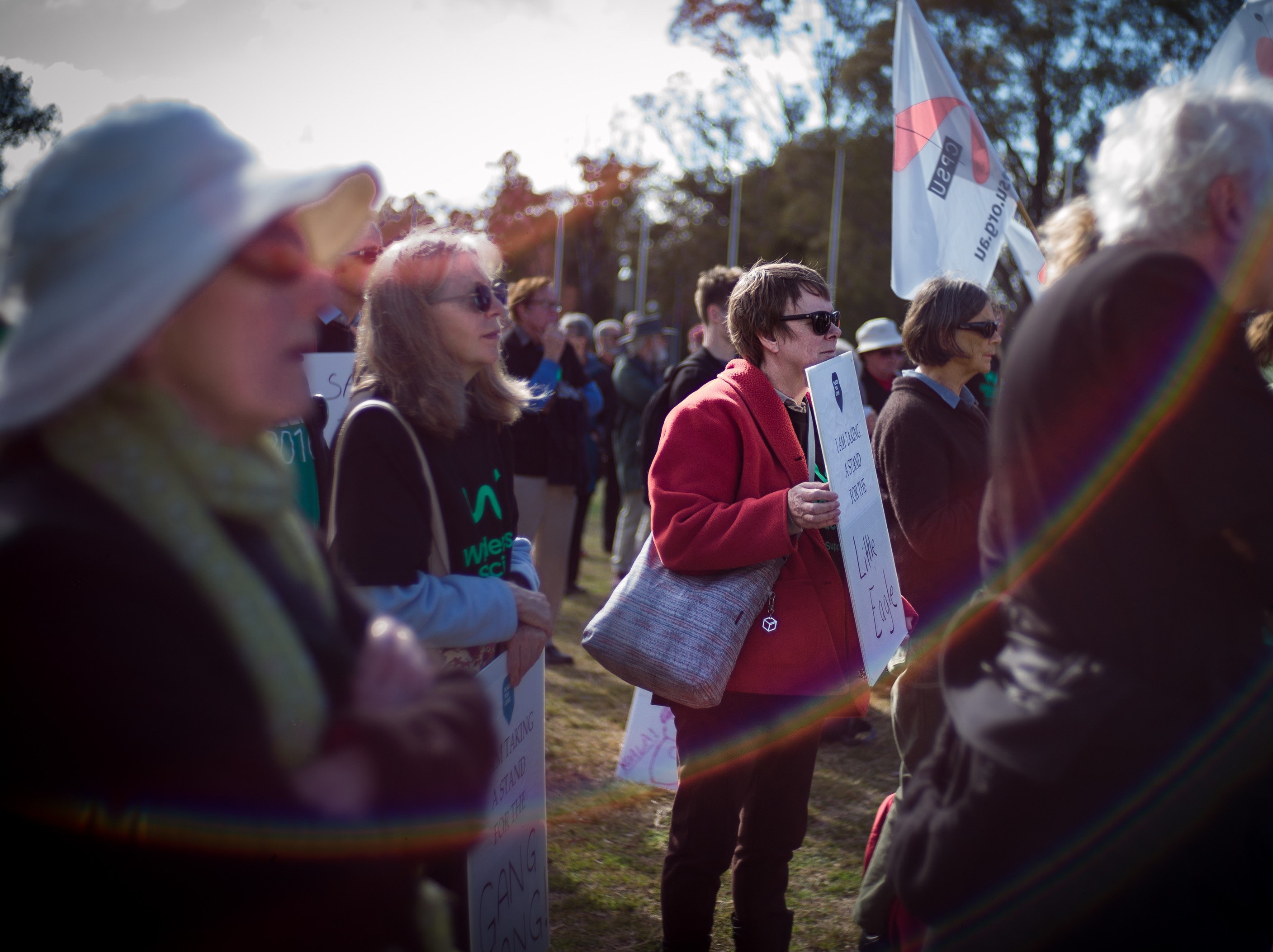
To ensure locals like Linda and Neil have meaningful input into decisions that affect them and the local environment, the Wilderness Society is calling for governments across Australia to enshrine and activate community rights in environmental decision-making.
If all communities across Australia are empowered with a nationally-consistent standard of strong environmental community rights, we’ll see better outcomes for people and nature.
You can help make this happen. Sign our petition to demand that communities have the right to transparency, meaningful participation and justice around environmental decisions.
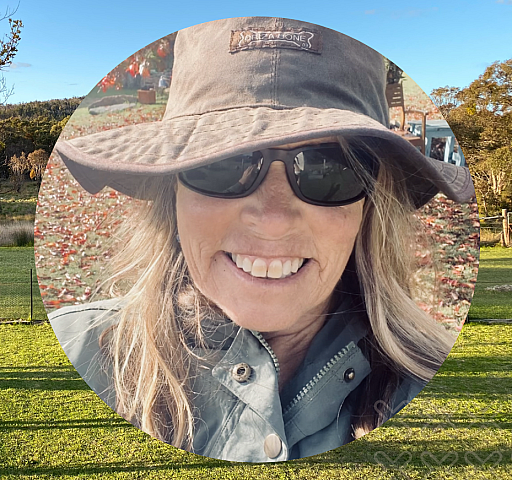
Yvonne is a fourth-generation farmer in Queensland's Southern Downs. When the state government granted a five-year mining permit on her property earlier this year, she was the last to know. Now, she's in a fight for her future.